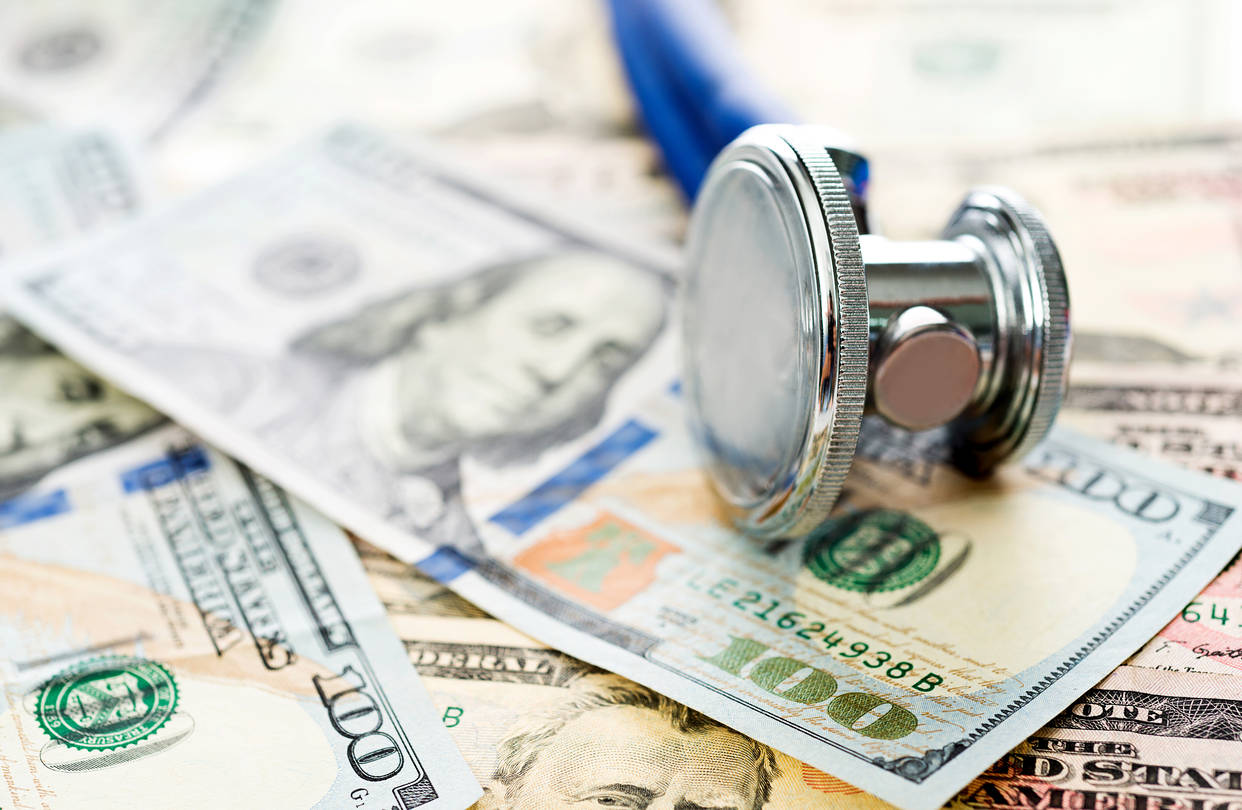FOR IMMEDIATE RELEASE
DALLAS, OCTOBER 18, 2016 – Imagine a government spending program that could be altered in a way that lowers the cost to the taxpayers and at the same time improves services for the beneficiaries. The change would literally make everyone better off.
Such opportunities are neither rare nor unusual according to a seasoned public policy analyst. They are ubiquitous.
“Opportunities to make everyone better off are everywhere in the public policy world,” says John Goodman, an economist who heads the Goodman Institute for Public Policy Research. Goodman is often referred to as the “Father of Health Savings Accounts,” and is credited with being a source of other public policy ideas, including the Roth IRA. His latest report is published by the Independent Institute, a think tank in Oakland California.
As an example, Goodman points to the Veterans Administration policy on prescription drugs. Veterans who tire of waiting for an appointment with VA doctors often go to private doctors to get prescriptions. But before they can get the prescription filled at the VA (where the prices are much lower) they must get a second prescription from a VA doctor.
“Veterans are the only people in our society who must get two prescriptions in order to get access to discounts on drugs. If we dropped that silly rule and let veterans fill private doctor prescriptions at the VA, we could lower the time cost and the money cost of veteran health care. And since we wouldn’t need as many VA doctors, we could lower the cost to the taxpayers as well.”
Goodman gives other examples of potential win/win changes in federal programs:
- Medicare should stop refusing to pay for phone and email doctor consultations, which are available from private services for a fraction of the cost of a doctor’s office visit.
- Medicaid should allow patients to add cash to the government’s reimbursement rate and gain access to walk-in clinics, where typical prices are well below the cost (to Medicaid) of a doctor visit or emergency room care.
- Medicare should start paying for Uber type doctor house calls (arrival within an hour at a cost of $100) instead of paying $500 for an emergency room visit at nights and on weekends.
“In each of these cases, a sensible change would improve access to care for the beneficiaries and lower the cost to the taxpayers at the same time,” he says.
You would think that politicians would jump at the chance to propose changes that make everybody happy and nobody mad. But apparently they don’t. Goodman says there are thousands of opportunities like these that are routinely ignored by politicians and government officials. Why is that?
“Washington is engulfed in two party warfare. If the two parties came together and did something that benefited everyone, the political base on each side would be suspicious. If your opponents aren’t screaming and yelling in opposition, the tendency is to think that your representatives aren’t doing their job,” he said.
Skeptics have suggested that Goodman may be too optimistic about the opportunities he envisions. After all, if you make it easier to get a prescription, people will get more of them, and that will increase the government’s cost. Similarly, if you make it easier to see a doctor, people will visit doctors more often. That may be good for the patient. But it could make the government’s cost higher as a result.
Goodman’s answer: trial and error and recalibration. For example, imagine we drop the requirement of a second prescription, but initially charged veterans with private prescriptions at the VA pharmacy a price that equal the private sector price. Then, start lowering that price.
As the price drops, more prescriptions would be filled and the cost to the government of filling them would rise. But as long as the price the veteran is paying is greater than the marginal increase in costs to the government, everyone is gaining.
“The VA needs to start thinking like a private business instead of a government bureaucracy, says Goodman. “Private companies don’t adopt policies and never change them for the next decade. They recalibrate what they’re doing all the time.”
###
About Goodman Institute
Led by Dr. John C. Goodman, the Goodman Institute for Public Policy Research (GIPPR), is a nonprofit, nonpartisan public policy research organization that promotes private alternatives to government regulation and control, solving problems by relying on the strength of the competitive, entrepreneurial private sector. Topics include reforms in health care, taxes, and entitlements. Visit www.goodmaninstitute.org.
Media Contact:
Waylon Tate
J. Waylon & Associates, LLC
O: 214-613-0073 | M: 214-763-3910

0 Comments